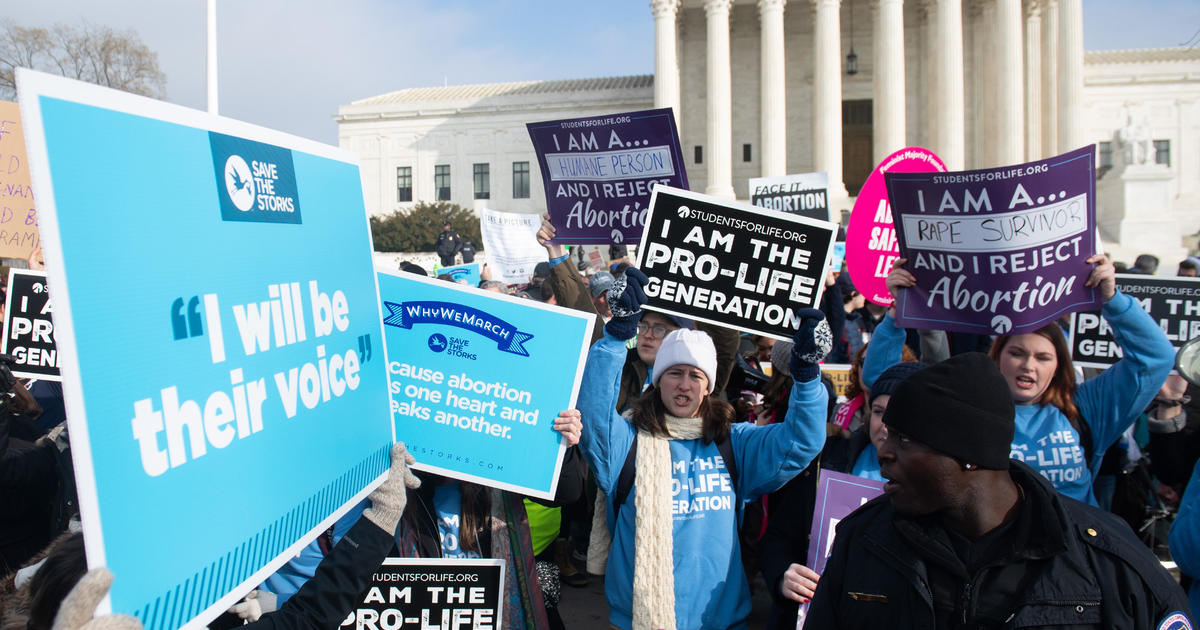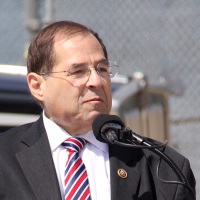
Gov. Brian Kemp is poised to sign the Georgia “heartbeat” abortion bill, one of the most restrictive pieces of anti-abortion access legislation in the country. But the bill could have implications beyond the state and ultimately affect women nationwide by providing legal bait to challenge Roe v. Wade.
If approved, the bill will prohibit abortions after a heartbeat is detected — typically five to six weeks in a woman’s pregnancy, when most women don’t know they’re pregnant.
The controversial bill, however, has little chance of being successfully implemented in the state. Similar legislation across the country has been temporarily blocked or struck down by federal judges who say they violate Roe v. Wade — the 1973 Supreme Court decision that guarantees a woman’s right to abortion up until a fetus is viable. The American Civil Liberties Union in conjunction with the Center for Reproductive Rights have promised to file a lawsuit against the Georgia law the moment it’s signed into law.
But Elizabeth Nash, a senior state issues manager at the Guttmacher Institute in Washington, D.C., said the goal of the bill probably isn’t Georgia anyway. It’s Washington.
“The whole point of this is that it’s aimed at the U.S. Supreme Court,” she said. “It could have a much bigger impact because it would impact access across the country.”
In this regard, the bill isn’t unique. States have started introducing and passing more anti-abortion access legislation than ever before, hoping it may lead to the Supreme Court reconsidering Roe v. Wade, Nash said in a telephone interview with CBS News on Tuesday. States see an opportunity for a possible challenge to the 1973 ruling with the arrival of Justice Brett Kavanaugh.
This year alone, state lawmakers have introduced more than 250 bills restricting abortion access, according to a study conducted by Planned Parenthood and Guttmacher last month. And six-week abortion bans, like Georgia’s, are up by 62 percent, according to the study.
Many of those restrictions have been blocked by federal judges, the first step in a long legal battle to get the legislation in front of the U.S. Supreme Court, said Nash. States can then appeal the decision, and if they’re denied again they can submit another appeal to the Supreme Court, which can choose whether or not they want to take the case, according to Nash. For conservative lawmakers interested in overturning or eroding abortion access, this appellate path is the only way to substantively chip away at Roe v. Wade, which is protected by the U.S. Constitution.
Georgia’s six-week abortion ban is likely to join a handful of other states in the pipeline to Washington, said Hillary Schneller, an attorney at the Center for Reproductive Rights.
“The states see a different makeup in the Supreme Court and are trying in hopes of a different result,” Schneller said in a telephone interview with CBS News on Wednesday.
Lawmakers in Arkansas and North Dakota have also approved six-week abortion bans, though both were stuck down by a circuit court judge. The U.S. Supreme Court declined to hear the cases in 2015 and 2016, respectively.
In Mississippi, where there’s only one abortion clinic, state lawmakers passed a 15-week abortion ban last year with an immediate effective date. The morning after the state’s governor signed the bill into law, Schneller and her team at the Center for Reproductive Rights team filed a lawsuit that blocked the legislation from going into effect.
But that hasn’t dissuaded the state’s lawmakers. Last week, Mississippi politicians passed a six-week abortion ban that would take effect in July. Schneller’s team again filed a lawsuit against the legislation, which is currently being considered by a federal judge.
If Governor Kemp signs Georgia’s six-week abortion ban, the legislation won’t go into effect until January 2020.
For now, it’s unclear when the bill will be signed into law. Kemp has until May 12 to either sign or veto the bill, said Cody Hall, a spokesperson for Kemp, in an email to CBS News on Wednesday. If the governor does nothing, the legislation will automatically become law, said Hall.
Kemp, however, has been outspoken in his support for the abortion ban, tweeting that “the legislature’s bold action reaffirms our priorities and who we are as a state.”
Member’s of Hollywood’s elite have banded together to urge him to veto the bill. A petition started by Alyssa Milano, who’s currently in Atlanta shooting for the Netflix show “Insatiable,” was signed by more than 100 celebrities, including Amy Schumer, Alec Baldwin and Judd Apatow. Milano wrote that if the bill passed, “we cannot in good conscience continue to recommend our industry remain in Georgia.”
The Writers Guild of America, East and West (WGA) said in letter shared on Twitter that they “urge Gov. Kemp to veto the bill.”
The letter also noted that if members were to boycott filming in Georgia, “the cost would be most deeply felt by the residents of Georgia — including those who directly work in the film and television industry, and those who benefit from the many millions of dollars it pours into the local economy.”
At an event in March, Kemp said the entertainment industry employs 200,000 Georgians and generated more than $60 billion of economic activity for the state.

